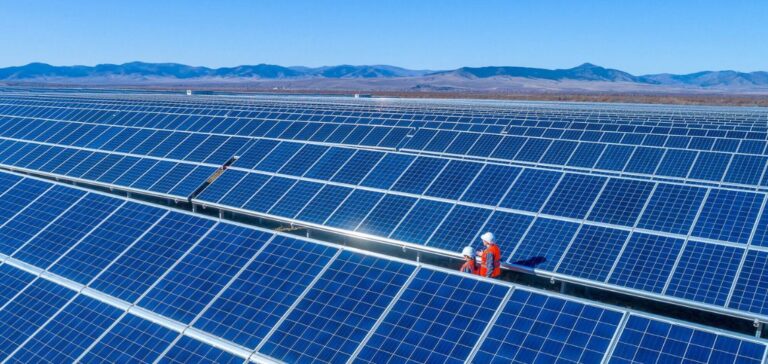Engie, a global energy leader, recently reached financial close for the construction of a 250 MW solar power plant at Goorambat East in Victoria, Australia.
The project, which received its first green light in 2019 under the aegis of French developer Neoen, is an important milestone for Engie, particularly following the acquisition of the project in 2023.
The plant is scheduled to come on stream in 2026, with enough generating capacity to supply around 105,000 homes.
The project marks a significant return for Engie to renewable energy generation in Victoria, a region where the company has had no similar projects since the closure of the Hazelwood coal-fired power station in 2017.
The Goorambat East project is part of a broader strategy to boost the share of renewables in Australia’s energy mix.
Economic benefits and community involvement
The solar power plant, located near the towns of Goorambat and Benalla, will generate significant local economic benefits.
Engie has signed agreements with five landowners to install the necessary infrastructure, and has signed engineering, supply and construction contracts with Bouygues Construction Australia and Equans Solar & Storage.
The construction phase is expected to create around 250 local jobs, contributing to the regional economy.
At the same time, Engie is committing to an annual community fund of A$75,000 and electricity bill rebates of up to A$1,000 for residents living near the new solar installations.
These initiatives are designed to alleviate the concerns of local communities about the impact of energy projects on their daily lives.
Regulatory and logistical context
The State of Victoria recently amended its regulatory framework to speed up the approval of renewable energy projects, a crucial change for projects like Goorambat East.
By designating these projects as being of state importance, local authorities reduce review times and avoid the delays often caused by unresolved objections at the State Administrative Tribunal.
The Goorambat East project will connect to AusNet’s existing 220 kV transmission line, strengthening the infrastructure required for the integration of new renewable energy generation capacity into Victoria’s electricity grid.
This development reflects Engie’s ongoing commitment to decarbonizing its energy portfolio while meeting Australia’s growing clean energy requirements. Through this project, Engie is not only expanding its presence in Australia, but also contributing to the achievement of Victoria’s climate goals.
This project is a perfect illustration of the transition to renewable energy sources, an essential component of the company’s energy strategy.






















